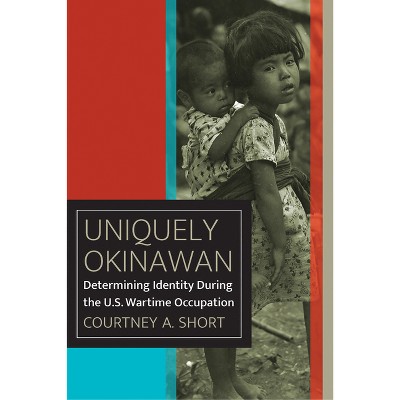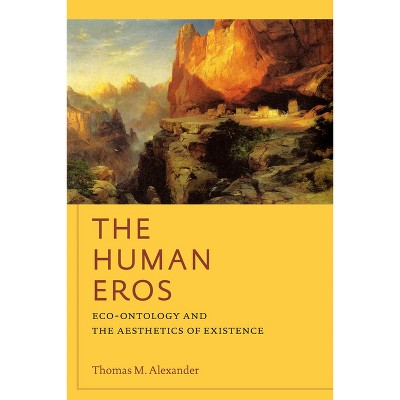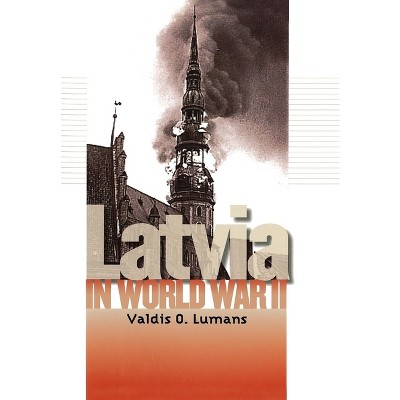Questioning the Human - by Lieven Boeve & Yves De Maeseneer & Ellen Van Stichel (Paperback)

About this item
Highlights
- Theological anthropology is being put to the test: in the face of contemporary developments in the spheres of culture, politics, and science, traditional perspectives on the human person are no longer adequate.
- About the Author: Lieven Boeve (Author) Lieven Boeve teaches fundamental theology and serves as dean of the Faculty of Theology and Religious Studies, KU Leuven, Belgium.
- 256 Pages
- Religion + Beliefs, Christianity
Description
About the Book
Traditional theological perspectives on the human person are being challenged by contemporary cultural, political and scientific developments. Bringing together Roman Catholic theologians from different sub-disciplines, this collection of essays engages with and responds to the resulting tensions in theological anthropology, with a special focus on the themes of nature, self and relationality.Book Synopsis
Theological anthropology is being put to the test: in the face of contemporary developments in the spheres of culture, politics, and science, traditional perspectives on the human person are no longer adequate. Yet can theological anthropology move beyond its previously established categories and renew itself in relation to contemporary insights? The present collection of essays sets out to answer this question. Uniting Roman Catholic theologians from across the globe, it tackles from a theological perspective challenges related to the classical natural law tradition (part 1), to the modern conception of the subject (part 2), and to the postmodern awareness of diversity in a globalizing context (part 3). Its contributors share a fundamental methodological choice of a critical-constructive dialogue with contemporary culture, science, and philosophy.
This collection integrates a wider range of approaches than one usually finds in theological volumes, bringing together experts in systematic theology and in theological ethics. Authors come from different American contexts, including Black and Latino, and from a European context that include both French and German. Moreover, the interdisciplinary insights upon which the different contributions draw stem from both the natural sciences (such as neuroscience, evolutionary biology, and ethology) and the humanities (such as cultural studies, philosophy, and hermeneutics). This volume will be essential reading for anyone seeking a state-of-the-art account of theological anthropology, of the uncertainties it is facing, and of the responses it is in the process of formulating. The shared Roman Catholic background of the authors of this collection makes this volume a helpful complement to recent publications that predominantly represent views from other theological traditions.Review Quotes
"The Christian notion of the Human involves both the biblical notion of the Imago Dei and philosophical understandings of natural law. How those concepts are to be understood, defended, and nuanced in the face of modernity and postmodernity is the subject of these rich and varied essays. This exploration of Christian anthropology, fifty years after the capacious vision of Gaudium et Spes, should be gratefully received and meticulously studied.-----Lawrence Cunningham, John A. O'Brien Professor of Theology (Emeritus), The University of Note Dame
In a time when the natural sciences are raising new questions about the very notion of a fixed human nature, theology is required to think more deeply about the meaning and implications of the classical claims of Christian faith, particularly the Incarnation. These welcome exploratory essays in theological anthropology by significant contemporary scholars will help theologians and students sort out the issues and join a very important conversation.-----Paul Crowley, Santa Clara University
In Questioning the Human, international known scholars explore crucial issues on the relation of human nature to sciences, ethics, and morality in a way that clearly shows how contemporary thought reflects on the human self and the human body in a world that is both diverse and commodified. These essays explore central questions that a Twenty-First Century theological anthropology needs to take into account. An exciting, probing, and informative volume.-----Francis Schuessler-Fiorenza, Stillman Professor of Roman Catholic Theological Studies
Theological anthropology, the project of articulating what it is and what it means to be human in relation to the transcendent God, stands at a crossroads in the second decade of the 21st century. Powerful forces shaping contemporary life--science and technology, the workings of the global economy, re-configurations of social and political power, regionally, locally, and globally--seem to render that project deeply problematic in terms of both its substance and its methods. The discourse of theological inquiry, moreover, has itself been pluralized, nor only in consequence of these encompassing cultural challenges, but also as a result of a renewed self-critical awareness of theology's own deep embedding in socio-cultural and historical particularity. The essays in this volume offer incisive diagnoses of these challenges and promising strategies to address them. They provide a solid basis for confidence in the continuing importance of a renewed theological anthropology for the living faith of the Catholic Church in its concrete engagements with the full range of the workings of the world.-----Rev. Philip J. Rossi S.J., Marquette University
About the Author
Lieven Boeve (Author)Lieven Boeve teaches fundamental theology and serves as dean of the Faculty of Theology and Religious Studies, KU Leuven, Belgium. He is the coordinator of the research group Theology in a Postmodern Context and cofounder of the interdisciplinary research group Anthropos. His focus is on theological epistemology, the relation, between theology and continental philosophy, and theological anthropology. His publications include Interrupting Tradition: An Essay on Christian Faith in a Postmodern Context (Peeters/Eerdmans, 2003), God Interrupts History: Theology in a Time of Upheaval (Continuum, 2007), and the coauthored volume The Ratzinger Reader (Continuum, 2010). Yves De Maeseneer (Author)
Yves De Maeseneer teaches fundamental theological ethics at the Faculty of Theology and Religious Studies, KU Leuven, Belgium. He is the coordinator of Anthropos, an interdisciplinary research group of theological ethicists and fundamental theologians developing a renewed theological anthropology. He is coeditor of Religious Experience and Contemporary Theological Epistemology (Peeters, 2005). Ellen Van Stichel (Author)
Ellen Van Stichel is a postdoctoral researcher at the Faculty of Theology and Religious Studies, KU Leuven, Belgium. In 2010 she defended her dissertation "Out of Love for Justice: Moral philosophy and Catholic Social Thought on Global Duties." She is a member of the research group Anthropos, and her research interest lies in care ethics, Catholic social thought, and social and biomedical ethics.











